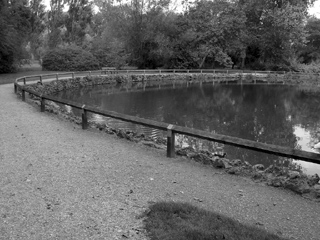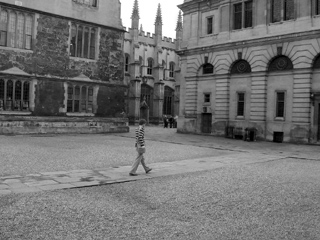I have been thinking about thesis structure lately. The one with the most appeal right now is as follows. This is, naturally, a draft and subject to extensive revision.
Expertise and Legitimacy: the Role of Science in Global Environmental Policy-Making
- Introduction
- Stockholm and Kyoto: Case Studies
- Practical consequences of science based policy-making
- Theoretical and moral consequences
- Conclusions
Introduction
The introduction would lay out why the question is important, as well as establishing the methodological and theoretical foundations of the work. The issue will be described as a triple dialogue with one portion internal to the scientific community, one existing as a dynamic between politicians and scientists, and one as the perspective on such fused institutions held by those under their influence. All three will be identified as interesting, but the scope of the thesis will be limited to the discussion of the first two – with the third bracketed for later analysis. The purpose of highlighting the connections between technical decision-making and choices with moral and political consequences will be highlighted.
Chapter One
In laying out the two case studies, I will initially provide some general background on each. I will then establish why the contrast between the two is methodologically useful. In essence, I see Stockholm as a fairly clear reflection of the idealized path from scientific knowledge to policy; Kyoto, on the other hand, highlights all the complexities of politics, morality, and distributive justice. The chapter will then discuss specific lessons that can be extracted from each case, insofar as the role of science in global environmental policy-making is concerned.
The Terry Fenge book is the best source on Stockholm, though others will obviously need to be cited. There is no lack of information on Kyoto. It is important to filter it well, and not get lost in the details.
Chapter Two
The second chapter will generalize from the two case studies to an examination of trends towards greater authority being granted to experts. It will take in discussion of the secondary literature, focusing on quantifiable trends such as the increased numbers of scientists and related technical experts working for international organizations, as well as within the foreign affairs branches of governments.
The practical implications of science in policy making have much to do with mechanisms for reaching consensus (or not) and then acting on it (or not). Practical differences in the reasoning styles and forms of truth seeking used by scientists and politicians will be discussed here.
Analysis of some relevant theses, both from Oxford (esp. Zukowska) and from British Columbia (esp. Johnson), will be split between this and the next chapter.
Chapter Three
Probably the most interesting chapter, the third is meant to address issues including the nature of science, its theoretical position vis a vis politics, and the dynamics of classifying decisions as technical (see this post). This chapter will include discussion of the Robinson Cruesoe analogy that Tristan raised in an earlier comment, as well as Allen Schmid’s article. Dobson’s book is also likely to prove useful here.
Conclusions
I haven’t decided on what these are to be yet. Hopefully, some measure of inspiration will strike me during the course of reading and thinking in upcoming months. Ideally, I would like to come up with a few useful conceptual tools for understanding the relationships central to this thesis. Even better, but unlikely, would be a more comprehensive framework of understanding, to arise on the basis of original thought and the extension of the ideas of others.
In laying all of this out, my aim is twofold. I want to decide what to include, and I want to sort out the order in which that can be done most logically and usefully. Comments on both, or on any other aspect of the project, are most welcome.




